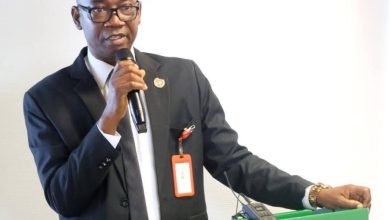
By Edu Abade
A report by environmental activists and advocates of preservation of the natural ecology have revealed sordid details of the impacts of the activities of transnational oil corporations on frontline communities in Nigeria and other African countries.
The report was unveiled in a virtual meeting organised by the Corporate Accountability and Public Participation Africa (CAPPA, Nigeria), Vision for Alternative Development (VALD, Ghana), Household Disaster Resilience Project (HELP, The Gambia), African Institute for Energy Governance (AFIEGO, Uganda) and DWB-Foundation (Kenya), as well as media practitioners in Lagos.
In their recommendations, they said going by findings from multiple sources, the transnational oil corporations were responsible for the heavy environmental damages across the African continent.
“While interests and profits remain their utmost motivations, they care less for the impacts and aftermaths of their operation. Government rule books where available are passive, silent and inadequate to curbing sustained infractions as we confirmed,” they stated.
Unveiling the report, which was moderated by Philip Jakpor and Oguntade Olamide Martins of CAPPA, they recommended that governments of African countries must adjust their policies and laws to enforce caution and punishment targeting the aftermaths of extractive activities; mandate oil corporations to be responsible for their infractions either deliberate or operational and ensure that corporations adhere to the conduct and public issuance of Environmental Impact Assessment (EIA) report.
Other recommendations include empowering impacted frontline communities in their journey to adaptation and resilience; relying on the shared concerns of frontline communities in the draft and implementation of its interventions, immediately setting up Climate Victims Support Fund (CVSF) to attend to impacts targeting livelihood and existence and instituting timely response mechanism to environmental sustainability.
On the rationale for the project, they explained that social and environmental realities have successfully dispelled the claims of Transnational Oil Corporations that they protect human and environmental rights in their spheres of operation.
“What has become normal is the total disregard for the safety and well-being of original landowners and frontline communities and instead, a premium placed on profit over and above the natural environment.
“Across Africa, communities close to oil infrastructure suffer massive pollution from oil spills, water contamination, and loss of livelihood, usually without meaningful remediation and commiserate
compensations when the corporations own up to such incidents, which rarely happens. Where available, government policies are supportive of corporate interests.
“There is no debate that fossil fuel corporations have violated quite a few human and environmental obligations signed in by Transnational Oil Cooperation (TNO-C) including illegal divestment, non-transparent dealings, nondisclosure of operating rights, porous operational procedures, and absence of structured and responsive corporate social responsibilities to ameliorate the pains of frontline communities,” the report stated.
On engagement options, the report focused on group discussions, community dialogues and MOCK tribunals, just as in country findings revealed that in Nigeria, Jakpor reported that residents of Iwerekhan Community were at a losing end.
“The once fertile community has progressively lost all its identity and rich history of farming and fishing, no thanks to the long history of oil extraction in the Community and the associated environmental pollution that continues to reduce the social and environmental worth of the people. The people suffer while oil corporations rake in profits.
“From our engagements with the locals, we learnt that the government and oil companies must be held responsible for their incautious operations and wanton disregard for the plights of the people. The people expressed their readiness to agitate for their rights and demand commensurate compensation in the spirit of the loss and damage fund,” he said.
In Kenya, particularly in Mijikenda, Winnie Ayieko explained that the people expressed genuine concern about the negative impacts of Vivo Energy (Shell)’s operations on their environment, livelihoods and overall wellbeing.
They stressed the importance of involving them in decision-making processes related to the establishment and expansion of oil companies in the region as they are the ones directly affected by those activities and raised concern about the adverse effects of pollution for oil corporations in the region and requested that efforts be put in place to prevent climate change, develop maintenance strategies, and put in place sustainable land and water management practices.
In Ghana, Godfred Tweneboah Kodua revealed that the engaged residents and fishermen reported declining catch and reduced diversity of marine species within drilling proximity, contamination, and pollution. They also reported instances of oil spills and toxic waste disposal into coastal waters harming marine life.
From the interviews, Tullow Oil Company allegedly restricted fishing activities in certain areas of the sea without providing compensation for the halt of the livelihood the community depends on for survival.
In some cases, the TNO-C may issue monthly restrictions of no fishing activities in the sea while they conduct surveys to determine new sites for their activities and while these activities have aided and improved the TNO-C activities and operations, the community has suffered major economic losses due to restrictions placed on their livelihoods.
In The Gambia, Dauda Cham said it was observed that the village has been hugely affected by the oil spillage, especially in the biodiversity aspect (including oysters, crabs, and mangroves). Men and women who solely depended on fishing and oyster business along the shores were left jobless.
“Curiously, women now venture into gardening and petty trading while the men still go to sea with little or no catch daily. During the spill, the fishermen lost most of their fishing nets and were forced to stay at home for a couple of weeks because of the dilapidated condition of the water before returning to sea.
“The experience in Uganda was no less excruciating as TotalEnergies constantly breached the International Labour Organisation’s (ILO) Convention 169, which requires free, prior and informed consultation and consent of potential persons to be affected by the project,” he stated.
The report added that in the presented cases, the location, type, size, quality and other specifications of alternative houses provided for affected persons (in the few cases where they were relocated) were without adequate consultation or input from the affected persons, adding that for TotalEnergies, the major and only interest remains profit.
It urged civil society organisations to continue to bridge the gap between the people and the government, as well as give honest feedback on government policies and programmes aimed at addressing climate change.
Others are to facilitate dialogue between corporations and the communities and supervise corporate social responsibility efforts, constantly engage government policies to guide against foreign influence and suggestions, and harmonise actions and demands.
Media practitioners were charged to deepen knowledge of the citizens on the realities of climate change and how best to leverage existing measures, and demystify the UNFCCC processes, its processes, deliberations, negotiations and supposed benefits to the frontline communities.
They were also urged to assist in advancing the Loss and Damage Agenda, especially for frontline communities across the globe and communicate climate change policies and policy directions of government at all levels.












